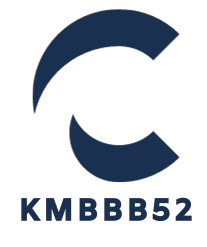In recent years, the digital landscape has been rapidly evolving, with new policies, technologies, and regulations shaping the way online platforms function and interact with users. One of the more intriguing developments is the implementation of OBOR 138, a regulatory framework that promises to have significant implications for online businesses and end-users alike obor 138. But what exactly is OBOR 138, and how will it affect your experience on online platforms? Let’s dive into what OBOR 138 is and what users can expect as this new policy takes hold.
What Is OBOR 138?
OBOR 138 refers to the latest set of regulations under the broader One Belt, One Road (OBOR) initiative—a global infrastructure and economic development strategy launched by China in 2013. While the OBOR initiative originally focused on physical infrastructure like roads, ports, and railways, it has now expanded to include digital infrastructure and technology platforms, creating a new regulatory framework for online services, e-commerce, and digital interactions across participating countries.
OBOR 138 is a regulatory guideline aimed at governing cross-border online transactions, data flow, and digital platform operations between nations that are part of the OBOR initiative. This includes countries in Asia, Europe, Africa, and beyond. The goal is to create a more standardized, secure, and efficient digital ecosystem that promotes economic growth, online safety, and data integrity across borders.
Key Aspects of OBOR 138 and Its Impact on Online Platforms
1. Stronger Data Privacy and Protection
With data privacy becoming an increasingly significant concern worldwide, OBOR 138 focuses on enhancing security and safeguarding user information. Online platforms will be required to adhere to stricter data protection measures, particularly when dealing with user data across international borders. Expect platforms to be more transparent about how they collect, store, and share your personal information.
For users, this means:
- Increased control over your data: You’ll likely have more control over how your data is shared and with whom.
- Stricter consent protocols: Platforms will have to obtain explicit consent before processing your data, and they may need to offer clearer opt-out options.
- Better security measures: Expect enhanced encryption and more robust protections against data breaches.
2. Cross-Border E-commerce Harmonization
One of the key elements of OBOR 138 is the harmonization of e-commerce regulations across different regions. For online retailers, this could mean fewer barriers when it comes to selling and shipping goods internationally. Standardized rules for tariffs, customs procedures, and trade restrictions can streamline cross-border e-commerce, benefiting both businesses and consumers.
For users, this could mean:
- Lower costs for international shipping: With standardized regulations, the cost and complexity of shipping goods across borders may decrease.
- Broader product availability: You may see a wider variety of international products available on local platforms as trade barriers are reduced.
- Faster delivery times: Streamlined customs procedures could lead to quicker delivery for international purchases.
3. Improved Digital Infrastructure
A major focus of OBOR 138 is on the development of robust digital infrastructure, including internet access, mobile connectivity, and cloud services. As OBOR 138 facilitates greater investments in digital technologies, online platforms can expect more reliable services, faster internet speeds, and wider reach.
For users, this means:
- Improved platform performance: Websites and apps may load faster, with fewer interruptions or technical glitches.
- Greater accessibility: As internet connectivity improves in underserved regions, more people will be able to access online platforms.
- Better user experiences: Expect smoother interactions on e-commerce sites, social media, and entertainment platforms due to improved infrastructure.
4. Enhanced Online Safety and Fraud Prevention
OBOR 138 places a significant emphasis on online safety, including measures to combat fraud, cybersecurity threats, and illegal online activities. Platforms will be required to implement stronger verification systems and monitoring tools to detect suspicious activities and ensure that users can transact safely.
For users, this could mean:
- Safer transactions: Payment systems and online banking services may become more secure, reducing the risk of fraud.
- Stronger content moderation: Online platforms may employ more advanced tools to identify harmful or misleading content, such as fake news or phishing scams.
- More reliable reporting systems: Users will likely see more accessible ways to report security breaches or inappropriate content.
5. Digital Sovereignty and Local Regulations
With OBOR 138, countries participating in the initiative may introduce or align existing local regulations to maintain a balance between international cooperation and national sovereignty. This could include regulations on the use of local languages, the promotion of local content, or even laws regarding censorship.
For users, this means:
- Region-specific content: You may see more content tailored to your country or region, whether it’s news, entertainment, or advertisements.
- Possible content restrictions: Some platforms may be required to censor or restrict content that doesn’t comply with local laws.
- Greater localization: Expect more features and customer service options in your local language and adapted to your region’s preferences.
What Users Should Expect in the Future
As OBOR 138 is rolled out and integrated into the global digital ecosystem, users will likely notice both subtle and significant changes in their interactions with online platforms. For most, the impact will be felt in the form of enhanced security, smoother international transactions, and a better overall user experience.
However, there may also be challenges. For instance, stricter data regulations could create friction for businesses operating across borders, leading to potential price increases or new subscription models to cover compliance costs. Additionally, content censorship could lead to debates over freedom of expression, particularly in more restrictive regions.
Conclusion
OBOR 138 represents an important step toward creating a more connected, secure, and efficient global digital ecosystem. While much of its impact will be felt by businesses that must adapt to new regulations, end-users will benefit from better data protection, improved e-commerce experiences, and enhanced safety when interacting with online platforms.
